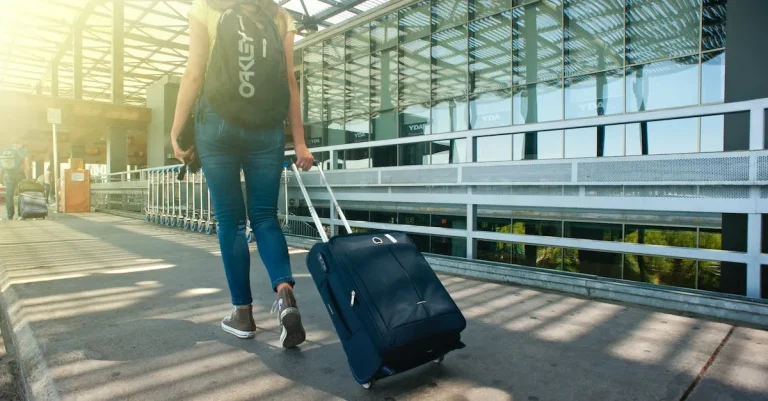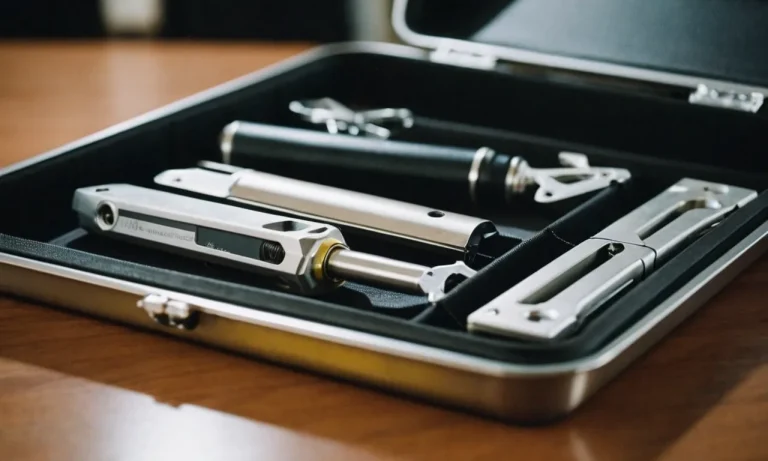If you plan to travel by air with flower or vegetable seeds, you may be wondering if they are permitted in your carry-on or checked luggage.
Seeds seem small and harmless, but many countries enforce strict regulations on importing plant materials to protect local ecosystems and agriculture.
The quick answer is maybe. In the U.S., seeds are generally allowed on domestic flights but banned internationally without proper documentation.
However, other nations have broader restrictions on flying with seeds either as carry-on items or in checked bags.
TSA Rules for Transporting Seeds as Carry-Ons
When it comes to flying with seeds, the Transportation Security Administration (TSA) has specific guidelines in place to ensure the safety and security of all passengers.
It’s important to familiarize yourself with these rules before packing your seeds in your carry-on luggage.
No limit on seeds for domestic U.S. flights
If you’re traveling within the United States, you’ll be pleased to know that there is no limit on the amount of seeds you can bring on board.
Whether you’re a gardening enthusiast looking to bring a variety of seeds for your next project or a traveler wanting to bring home some unique plant species, you can take as many seeds as you’d like in your carry-on bag.
International flights require phytosanitary certificate
For those planning to fly internationally with seeds, it’s important to note that additional regulations apply.
Most countries require a phytosanitary certificate, which certifies that your seeds are free from pests and diseases.
This certificate is obtained from the appropriate agricultural authority in your home country and must accompany your seeds during travel.
It’s crucial to research and comply with the specific requirements of your destination country to avoid any issues at customs.
Officers can inspect and confiscate suspicious plant materials
While there are no specific restrictions on bringing seeds on board, it’s worth mentioning that TSA officers have the authority to inspect and confiscate any suspicious plant materials.
If your seeds are deemed to pose a potential risk to agriculture or the environment, they may be confiscated.
It’s always a good idea to pack your seeds in clearly labeled containers and be prepared to answer any questions about their origin and purpose.
U.S. Customs Regulations for Bringing in Seeds from Abroad
Traveling internationally can be an exciting adventure, but it’s important to familiarize yourself with the customs regulations of your destination country.
If you’re a gardening enthusiast looking to bring seeds back home from abroad, it’s crucial to understand the rules and restrictions that apply.
In the United States, there are specific regulations regarding the importation of seeds, which aim to protect the country’s agriculture and ecosystem.
Prohibition on seeds from most countries without permit
In general, the importation of seeds from foreign countries into the United States is prohibited without the proper permits.
This restriction is in place to prevent the introduction of invasive species, plant diseases, and pests that could harm domestic crops and ecosystems.
It’s important to note that each country may have different regulations regarding the exportation of seeds, so it’s always best to check with the local agricultural authorities before attempting to bring seeds into the United States.
However, there are some exceptions to this rule.
The United States Department of Agriculture (USDA) allows the importation of certain types of seeds if they are properly packaged and accompanied by the necessary paperwork.
These exceptions are typically limited to seeds that have been tested and approved by the USDA to ensure they pose no threat to the environment or agriculture.
Exceptions for approved, properly packaged seeds
If you are considering bringing seeds into the United States, it’s essential to ensure they meet the USDA’s requirements for importation.
Seeds that are approved for importation must be properly packaged, labeled, and accompanied by a phytosanitary certificate issued by the exporting country’s agricultural authorities.
This certificate verifies that the seeds have been inspected and are free from pests, diseases, and other contaminants.
It’s also important to note that there are restrictions on the quantity of seeds that can be brought into the country.
The USDA sets limits on the number of seeds that can be imported for personal use, and exceeding these limits may result in penalties or confiscation of the seeds.
Mailing seeds back home to avoid inspection issues
If you are unsure about the regulations or restrictions regarding bringing seeds on a plane, it may be safer to mail them back home instead.
By shipping the seeds, you can ensure they are properly inspected and meet all necessary requirements before entering the country.
Additionally, mailing the seeds allows you to avoid any potential issues with airport security or customs officials.
Before mailing the seeds, it’s important to research the regulations of both the exporting and importing countries to ensure compliance.
Some countries may have restrictions on the importation of seeds through mail, so it’s crucial to check with the local postal service or agricultural authorities for guidance.
Remember, it’s always better to be safe than sorry when it comes to complying with customs regulations.
By understanding the rules and regulations regarding the importation of seeds, you can ensure a smooth and hassle-free travel experience while protecting the environment and agriculture of your home country.

Other Countries’ Rules for Flying with Seeds
EU, UK, Australia, New Zealand prohibit entry of many seeds
When it comes to flying with seeds, it’s essential to remember that regulations can vary from country to country.
For instance, the European Union (EU), United Kingdom (UK), Australia, and New Zealand have strict rules in place regarding the entry of seeds.
These countries prohibit the importation of many seeds due to the potential risks they pose to their native ecosystems.
This is done to prevent the introduction of invasive species that could harm local plant and animal life.
If you are planning to travel to any of these countries, it’s important to check their specific regulations regarding seeds before your trip.
The authorities in these countries may confiscate any seeds that are not allowed, and you might face penalties or denial of entry if you fail to comply with their rules.
Some Asian countries ban agricultural materials completely
While some countries have specific regulations for seeds, others take a more general approach by banning the importation of agricultural materials altogether.
This includes seeds as well as other items such as plants, fruits, and vegetables.
Some Asian countries, like Japan and South Korea, have strict restrictions on bringing any agricultural materials into their borders.
If you are traveling to an Asian country, it’s crucial to be aware of these regulations.
Attempting to bring seeds or any other agricultural materials into these countries can lead to severe penalties, including fines and confiscation of the items.
It’s best to leave your seeds at home and purchase them from local sources once you arrive at your destination.
Penalties like confiscation, fines, and denial of entry
It is important to understand that violating the rules regarding seeds and other agricultural materials can have serious consequences.
Depending on the country, penalties can range from confiscation of the seeds, fines, and even denial of entry.
These measures are in place to protect the environment and prevent the introduction of harmful plant diseases or invasive species.
To ensure a smooth and hassle-free travel experience, always research and abide by the regulations of the country you are visiting.
Check with the local authorities or consult the official government websites for the most up-to-date information on what seeds are allowed and what restrictions are in place.
Remember, it’s better to be safe than sorry. Don’t risk facing penalties or having your trip disrupted by attempting to bring seeds that are not permitted.
Respect the regulations of the countries you visit and help protect their ecosystems.
How to Fly with Seeds Safely and Legally
Flying with seeds can be a bit tricky, as different countries have different regulations regarding the import and export of plant materials.
To ensure a smooth journey and avoid any legal issues, it is important to follow a few guidelines.
Research import rules for all countries on your itinerary
Before you embark on your travel adventure, take some time to research the import rules and regulations of all the countries on your itinerary.
Certain countries have strict restrictions on bringing seeds, especially if they are considered invasive or pose a threat to local ecosystems.
To find accurate and up-to-date information, check the official websites of the agriculture or customs departments of each country you plan to visit.
For example, if you are traveling to the United States, you can visit the United States Department of Agriculture (USDA) website for detailed information on importing seeds.
The USDA provides a list of prohibited and restricted plant materials, along with the necessary permits and documentation required for legal importation.
Obtain necessary documents for regulated seeds before travel
If you are carrying regulated seeds that require special permits or documentation, make sure to obtain them before your travel.
These permits may vary depending on the type of seeds and the country you are visiting.
It is crucial to comply with the regulations in order to avoid penalties and delays at the airport.
Some countries may require a phytosanitary certificate, which confirms that the seeds are free from pests and diseases.
To obtain this certificate, you may need to contact your local agricultural authority or consult with a plant quarantine officer.
They will guide you through the process and provide you with the necessary paperwork.
Declare all agricultural items to avoid problems
When going through airport security, it is important to declare all agricultural items, including seeds, to avoid any problems.
Be honest and transparent about what you are carrying, as failure to declare agricultural items can result in fines or confiscation of the seeds.
At the airport, you may be asked to present the necessary documents and permits for the seeds you are carrying. Having everything prepared in advance will make the process smoother and faster.
Conclusion
In summary, while you can likely fly domestically with seeds, bringing them overseas involves major restrictions.
Certain documentation is required to pass customs with seeds in most nations. To avoid issues, research regulations thoroughly and be prepared to declare or discard restricted plant materials.






